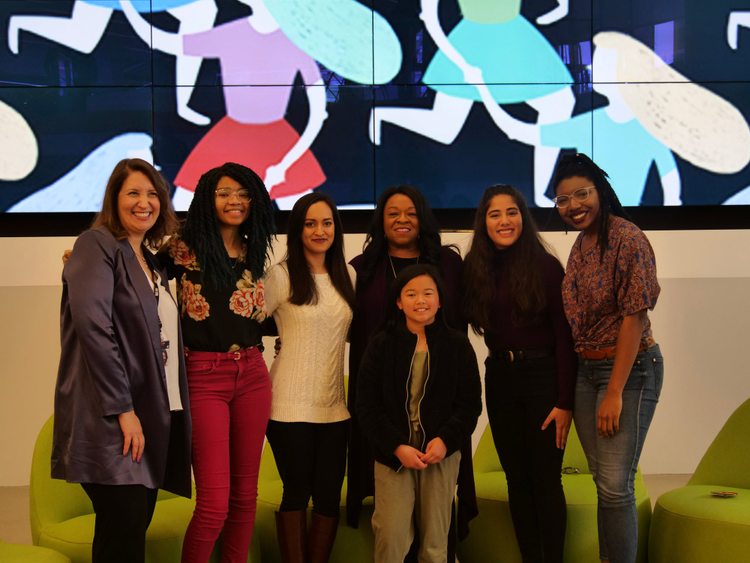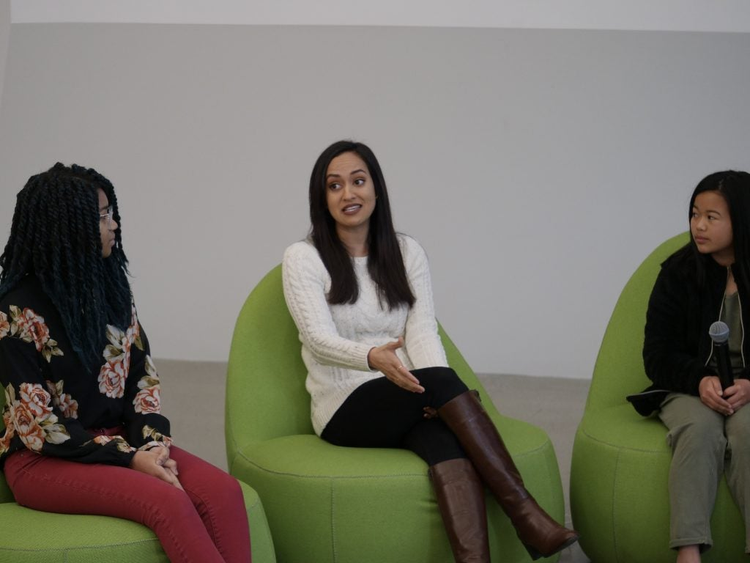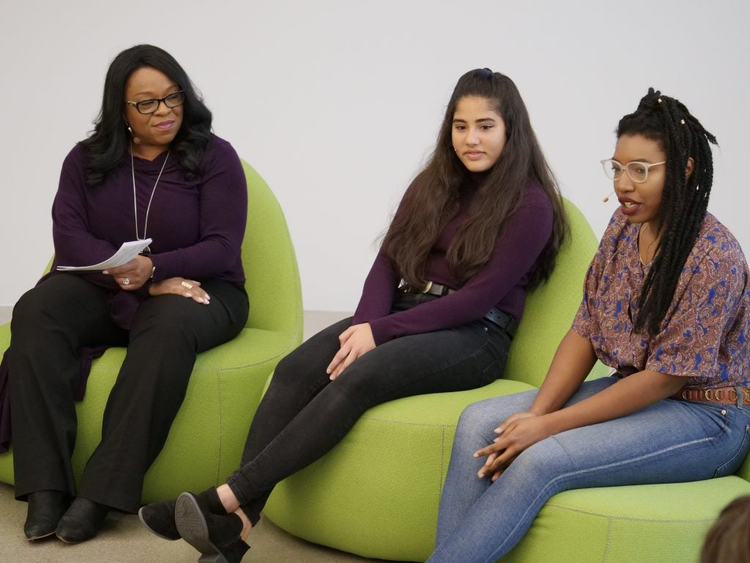Key Takeaways from Adobe’s Youth Panel

As we celebrate Women’s History Month and look at the empowering women before us, we’re also looking to the future.
Last week, Adobe hosted a youth panel, titled “Young Women Talk About What’s Next,” consisting of five future women leaders. The panel provided fresh insight into the challenges and opportunities for young women today. Moderated by Toni Vanwinkle, Senior Director, Digital Workplace Experience, the panel included young women from diverse backgrounds, sparking conversations about what it’s like to be a young woman today, what gender balance means to them, the workplace of the future, and how they are pursuing their dreams.
Panelists included Ashley Boudeville, a sixth grader and co-founder of Color Cruiser LLC, an art and craft store. Nishita Belur, a high school sophomore and student ambassador for Technovation. Camille Harris, a senior at UC Berkeley where she’s completing a Bachelor of Arts in Computer Science, and is the President of the Black Engineering and Science Student Association (BESSA). Cadence Patrick, a Digital Media student at Oakland School for the Arts and a student ambassador for Black Girls Code. And Srishti Sehtia, a Software Engineer who joined Adobe by teaching herself to code and participating in the Adobe Digital Academy. Here are some of our takeaways from the event.
There’s no shortage of ways to get involved in STEM
Although there’s a smaller percentage of women in STEM careers, for the panelists, they all had different ways into how they first got involved.
Ashley first got interested in math and science when her father got her a science kit, which helped her come to love science. Cadence got introduced to technology when she participated in a hackathon that taught her how to create her own app. For Srishti, it was having the opportunity to teach herself technical skills by participating in Adobe’s Digital Academy to reinvent herself.
So it’s not about a lack of interest in STEM—it’s about retaining that interest afterwards, and making sure women feel supported in these fields of study and have role models.

From left to right: Cadence Patrick, Srishti Sehtia, and Ashley Boudeville.
Their experience growing up is different than the past generation’s
The big takeaway that these young women wanted the audience to know? That their experience growing up today is much different than the past generation’s. And what makes it so different? Social media. “Social media is good and bad,” said Cadence.
“I think comparing ourselves to others is a huge challenge for our generation. Now, we can see what people are doing socially, awards they’ve won, etc. on social media. It’s easy to compare yourself and get discouraged. I don’t think my parents had as much visibility into other’s lives so they didn’t feel the comparison pressure as much” said Neshita.
So, what can parents and adults do to support young women? Trust and listen to them. “When young women speak up, it’s often labeled as ‘that woman’s being coached’ or ‘her parents told her what to say.’ But no, we’re young women and we all have a voice and we have very valid thoughts and ideas that we came up on our own,” said Camille. “When a young women speaks up and has an idea, no matter how young she is, believe her and listen to her and take it seriously.”

From left to right: Toni Vanwinkle, Nishita Belur, and Camille Harris.
Young women are already mentoring the next generation of leaders
Although young, it was abundantly clear that each member of the panel was keen on mentoring the next generation of women leaders. For Ashley, she tutors younger students. For Cadence and Nishita, they introduce other young women to Technovation and Black Girls Code. And for Camille and Srishti, they stressed the importance of fostering an inclusive environment where women can support each other.
You’re never too young to start mentoring and encouraging others!
Want to learn what else Adobe is doing to support diversity and inclusion in tech? Visit our diversity site here.